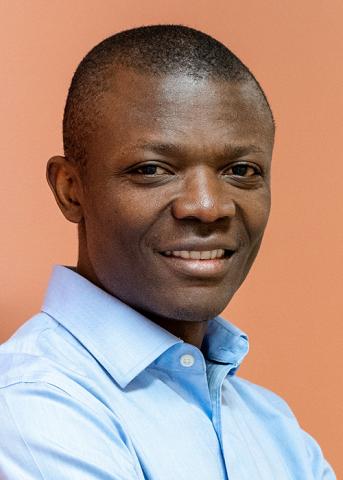Ali N’Simbo graduated from the UW with an MPH in Community-Oriented Public Health Practice (COPHP).
Why did you choose the UW?
It has one of the best public health programs in the United States. It’s also a great place to meet people who care about community health.
Why did you choose the COPHP program?
Its community focus is at the core of my heart. I also like the program’s problem-based learning approach. (Real-world problems are used as vehicles to promote student learning.)
What motivates you about public health?
I come from a country with some of the poorest health indicators in the world and I lived through 18 years of war. Because I am alive, I have great hope for the field of public health. I know what it’s like to work in resource-poor hospital settings and to witness deaths that are preventable. I’ve come to understand that many problems we deal with in the hospital have solutions outside of the hospital walls. My motivation comes from observing programs that have failed in their design and, therefore, did not reach their objectives. I believe that change is possible from within communities.
What are your research or work interests?
I have worked as a physician in my country in emergency interventions during public health crises such as war, malnutrition and outbreaks. I’m interested in studying the barriers to post-delivery maternal and infant follow up, and its effects on the whole family. I’m also interested in studying the impact of environmental infrastructure and urban planning on public health.
Tell us about your practicum.
I am working at VillageReach on a mobile messaging service and hotline for maternal and child health, and next-generation immunization supply chain using drones to deliver immunizations to remote areas in Africa.
You are a 2017-18 Grayston-Day Fellow. What has that meant to you?
It is an honor to be among the awardees. The award has greatly reduced the stress I had about paying for school, but it’s about more than just money. It represents a stone that will go toward rebuilding my community.
Do you have any extracurricular activities or jobs?
My wife and I have two small children, ages 8 months and 3 years. I love to spend time with them and teach them new things. We are growing a vegetable garden together. I’m the primary caregiver when my wife is at work, which helps us to cut down on child care expenses. I’m also a member of the Board of Directors of Doctors Without Borders.
What are your future goals?
My country is in a crisis, and emergencies are our modus operandi. I want to start an organization in eastern Congo that delivers health care in emergencies, while focusing on empowering communities to regain control of their health. We need a primary health care system that meets the needs of the entire family, the pillar of communities.
Do you have any advice for students applying for funding opportunities?
As a Grayston-Day Fellow, I would humbly suggest to anyone to share their uniqueness and find commonalities. Allow people to discover what motivates you. You might connect with someone who shares the same passions and who may be willing to invest in your education.
What do you like most about Seattle?
The landscape and natural beauty of Seattle reminds me of my hometown. Being in Seattle means being at the UW, which is the best university with amazing people.

